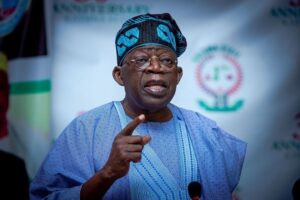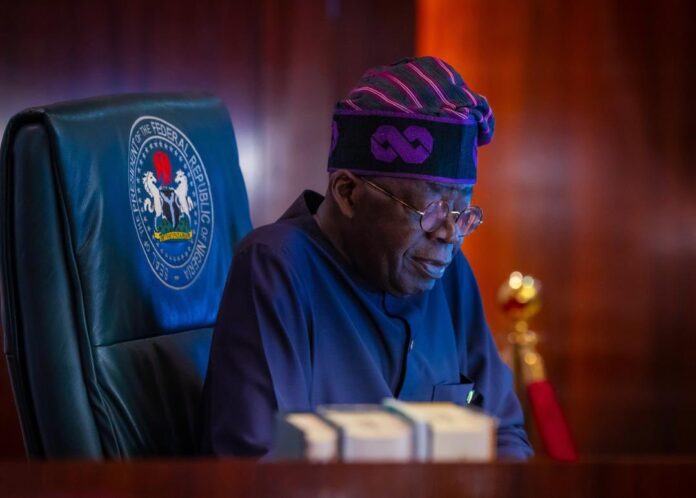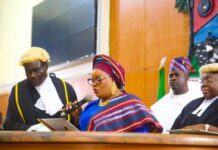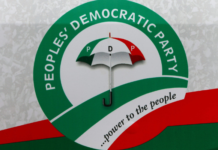On Tuesday, President Bola Tinubu announced that his administration is undertaking significant reforms aimed at transforming Nigeria’s macroeconomic landscape and restoring public confidence in the nation’s economy.
During the opening of the 17th Annual Banking and Finance Conference organized by the Chartered Institute of Bankers of Nigeria (CIBN) in Abuja, a message delivered by Vice-President Kashim Shettima outlined the government’s strategic initiatives focused on combating inflation, stabilizing the foreign exchange market, and enhancing fiscal management.
“Bold actions have been taken to reform our macroeconomic framework,” President Tinubu stated. “Our priority lies in reinstating confidence in Nigeria’s economy through efforts designed to tackle inflation, ensure stability in the foreign exchange arena, and improve fiscal practices.”
He acknowledged that while the elimination of fuel subsidies might cause short-term discomfort, it is intended to liberate budget funds for essential infrastructure investments and social services. The administration is also frequently adjusting the monetary policy rate to combat inflation and move towards a more market-driven exchange rate framework.
The president described the conference’s theme, “Accelerating Economic Growth and Development: The State of Play and the Way Forward,” as both pertinent and necessary, especially given the nation’s current challenges.
He listed issues such as soaring inflation, increased living costs, unemployment, infrastructure shortfalls, and repercussions from global economic changes, yet he emphasized that these challenges could also serve as catalysts for growth and development.
“This theme allows us to assess our national standing, delve into the underlying causes of our economic hurdles, and identify actionable pathways to foster sustainable and inclusive growth,” he remarked.
President Tinubu reiterated the government’s dedication to bolstering infrastructure development as a crucial element of Nigeria’s economic strategy.

“We are focused on enhancing the nation’s infrastructure to facilitate economic growth. Investments are being made in transportation networks, rail systems, and energy projects through collaborative partnerships to minimize transportation expenses and enhance market accessibility,” he added.
He also highlighted the significance of prioritizing the digital economy, which is poised to spur innovation and improve financial inclusion.
“We are working to expand broadband access and foster tech startup growth via initiatives like the Digital Nigeria program. Currently, we are training three million Nigerian youths in digital skills and connecting them with innovation hubs.”
“These initiatives aim to create employment opportunities, boost productivity, and ensure that financial services are accessible to all Nigerians. We are committed to achieving a 70% digital literacy rate by 2027 through innovative delivery methods, ongoing collaborations, and stakeholder engagement,” he stated.
Looking ahead, President Tinubu called for collective action across various sectors, including government, private enterprises, and civil society organizations, asserting that “to attain sustained economic growth, we must purposefully align our policies and actions with the evolving global context.”
He expressed optimism that the conference would serve as a valuable forum for idea sharing, knowledge exchange, and the exploration of innovative solutions to Nigeria’s pressing challenges.




